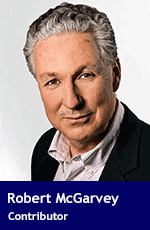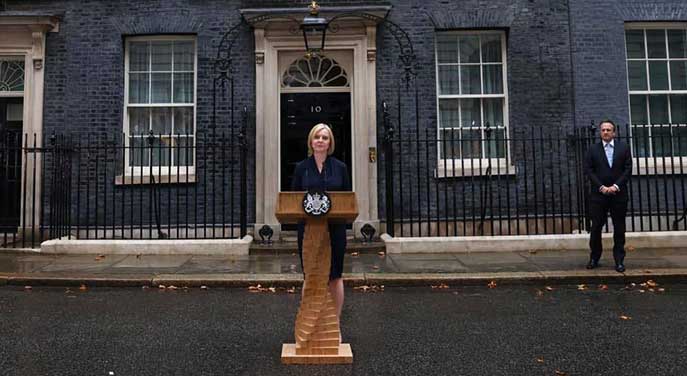 Whatever you might think of events in the UK these past weeks, it’s clear that Brexit is far from complete: The government of the United Kingdom remains subject to the sovereign will of financial markets – the real power in Britain.
Whatever you might think of events in the UK these past weeks, it’s clear that Brexit is far from complete: The government of the United Kingdom remains subject to the sovereign will of financial markets – the real power in Britain.
Prime minister Liz Truss’s stunning demise demonstrates that, despite gaining significant political sovereignty in Brexit, the UK government will not be truly sovereign until it is able to recover its full monetary sovereignty.
It’s all about money: while it remains conventional wisdom that Parliament is dependent upon income taxes and public sector borrowing to fund its programs, the building and maintenance of infrastructure, as well as maintaining military and judicial systems etc., it is a little-known fact that there are two classes of monetary ‘agency’ in western capitalism.
 |
| Related Stories |
| Canada is squandering its intangible future
|
| We need to start putting a value on intangible assets
|
| We need to reset capitalism before we dig a deeper hole |
There are primary monetary agents (banks etc.) that are authorized to generate and circulate new money (debt free) in the system, and there are secondary consumers (or users) of money. Among the most egregious flaws in modern capitalism is the notion that governments are simply ‘users’ of money and have no means of (re)-covering their historical role as primary money producers.
Although all sovereign governments have the legal authority to produce new money, including credit resources, inexplicably, they routinely outsource that monetary role through their central banks to the private banking system (without compensation). This limits governments’ ability to build and maintain the physical and human infrastructure necessary to support a modern economy.
The growing public sector debt crisis in all developed economies, including Canada, directly results from this monetary paradox. To compensate, Western governments have adopted quantitative easing (QE) as a half step towards sovereign monetary agency. The central bank – essentially an arm of government – produces new monetary resources through a simple accounting entry and makes these resources available (indirectly) for fiscal purposes. The façade of government ‘debt’ is maintained to support the myth that QE monetary resources were supplied by independent third parties and that governments must repay those debts in full.
There are good reasons for maintaining this façade. The idea of monetary agency being divorced from government is based on the fear that governments, as democratic institutions, are not prudent enough to limit spending. It is assumed that if they had monetary authority, they’d be compelled – like Weimar Germany in the ‘20s – to overspend recklessly, creating inflation, instability and, possibly, financial collapse.
However, given that governments will have to recover their monetary sovereignty to avoid bankruptcy and national collapse, what could be done to control government spending, which leads to inflation?
As the exchange value (as opposed to nominal value) of modern fiat money is no longer secured by gold, the true value in a national currency derives from a nation’s productive ‘engine of growth’. In other words, the integrity of money is a function of the extent and quality of its capital stock and flow.
In accounting terms, this comes down to a nation’s productive assets. Assets play a key role in limiting inflationary bank lending. Asset backing for loans (new money creation) is critical because the productive output derived from assets results in exchange transactions, which creates, in aggregate, the demand for money. That’s why banks are so keen on asset security for loans.
Ideally, the state could use this same formula to govern its own monetary agency.
Given the pressures facing elected governments, money supply analytics would need to be anchored against a reliable metric. With accurate accounting of the full suite of tangible and intangible assets in both private and public sectors of the economy, monetary authorities could establish a dependable metric to quantify money supply and predict the non-inflationary limits of monetary growth through balance sheet growth over time.
The state could then generate, debt-free, new monetary resources secured against publicly owned collateral, for instance, educational and public healthcare assets.
The conventional privatized monetary system worked well enough (i.e. it was not a fatal handicap) when it was being adhered to by all major economies. However, that assumption has now been overwhelmed by the rise of sovereign monetary power in China and the emergency circumstances of our times.
Robert McGarvey is an economic historian and former managing director of Merlin Consulting, a London, U.K.-based consulting firm. Robert’ is the author of Futuromics: A Guide to Thriving in Capitalism’s Third Wave.
For interview requests, click here.
The opinions expressed by our columnists and contributors are theirs alone and do not inherently or expressly reflect the views of our publication.
© Troy Media
Troy Media is an editorial content provider to media outlets and its own hosted community news outlets across Canada.

